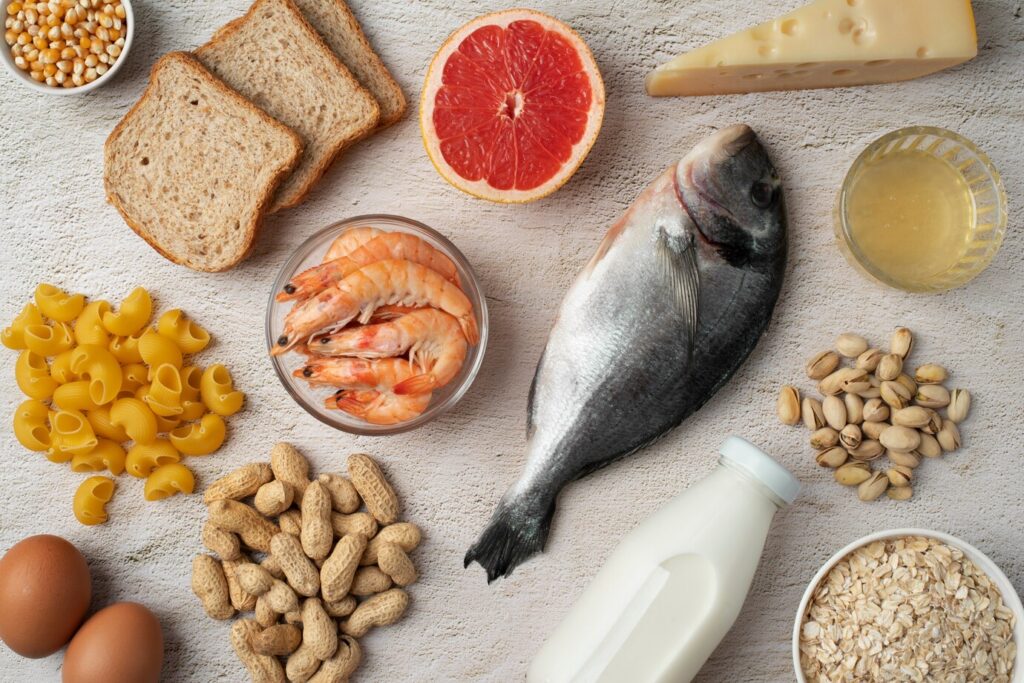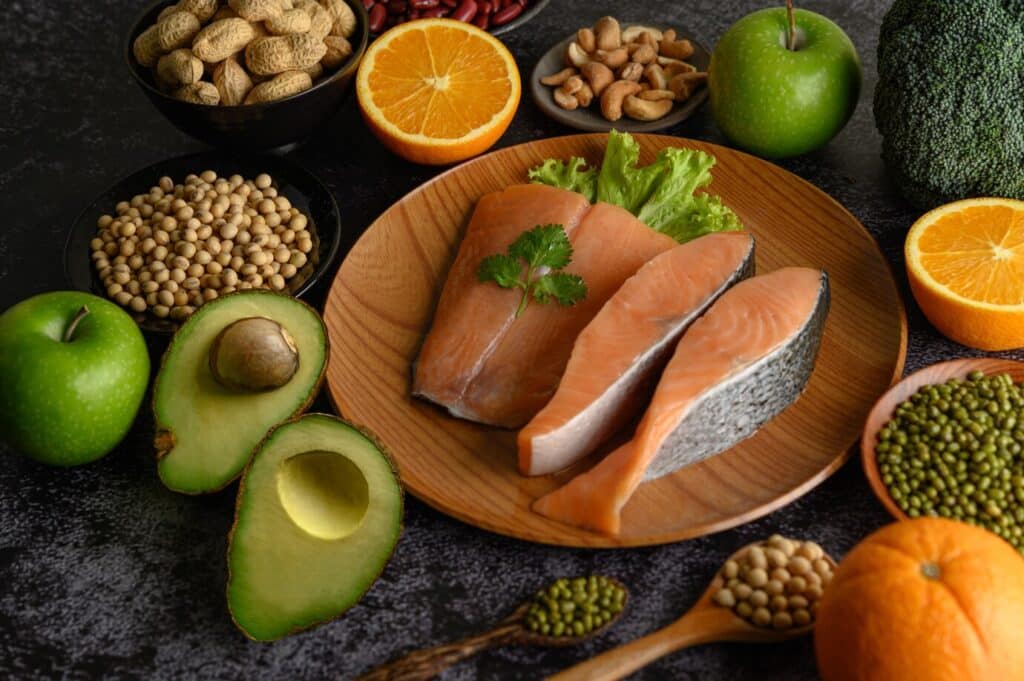Top Foods to Combat Osteoporosis and Boost Bone Health
Osteoporosis affects millions of adults, especially as they age, increasing the risk of fractures and limiting mobility. Fortunately, adopting a nutrient-rich diet filled with foods to combat osteoporosis can strengthen bones, improve joint function, and prevent bone loss over time. Whether you’re looking for preventive strategies or managing existing symptoms, nutrition plays a crucial role.
At Westmont of Carmel Valley, we understand the importance of dietary choices in promoting strong bones and overall wellness. In this guide, we’ll walk through some of the best food choices for seniors and explore how to maintain bone density while avoiding foods that could compromise it.
Calcium-Rich Dairy Products for Bone Strength
When aiming to include foods to combat osteoporosis, calcium-rich dairy items should top the list. Milk, yogurt, and cheese are classic choices, delivering high levels of calcium that support bone density. These are also among the best foods for calcium and osteoporosis, especially when combined with vitamin D-rich sources, which can improve calcium absorption.
If you prefer dairy alternatives, options like fortified almond milk, soy yogurt, and oat-based cheeses are great for those who avoid lactose. These alternatives not only support bone strength but also fit into a 7-day meal plan for osteoporosis, helping seniors plan balanced meals throughout the week.
Leafy Greens Packed With Nutrients
Leafy greens such as kale, spinach, and collard greens provide impressive levels of calcium, vitamin K, and antioxidants—all essential foods for strong bones and joints. Including leafy greens in your daily meals not only enhances bone strength but also promotes overall vitality.
Nutrient Density Comparison
Leafy greens stand out among vegetables for their high nutritional value:
- Kale: High in vitamin K and calcium
- Spinach: It contains calcium, though its oxalates may hinder absorption
- Collard greens: Rich in both calcium and vitamin C
These vegetables are excellent staples in any 7-day meal plan for osteoporosis, and pairing them with fresh fruits and vegetables enhances your intake of necessary micronutrients.
Best Leafy Green Varieties
For optimal results, rotate through different leafy greens. Women especially benefit from these options, as women’s food for strong bones and joints should be rich in vitamin K and calcium. Nutrient-packed meals using kale, bok choy, and mustard greens can be both delicious and therapeutic. Additional nutrition tips can help guide your food choices for long-term bone health.
Canned Fish for Added Calcium
Canned salmon and sardines are potent additions to a bone-healthy diet. These fish contain edible soft bones, making them one of the best calcium foods for osteoporosis—a go-to for anyone serious about maintaining strong skeletal health.
Benefits include:
- Convenient calcium source
- Packed with omega-3 fatty acids
- Rich in Vitamin D
- Affordable and easy to store
These fish are also incredibly versatile. You can mix them into pasta, salads, or sandwiches, increasing your calcium and protein intake in one delicious move. Their Vitamin D content further boosts calcium absorption, making them a core component of bone-friendly meals.
Vitamin D Sources to Enhance Absorption
Vitamin D is a key partner to calcium in maintaining bone strength. Without it, your body can’t effectively absorb the minerals it needs.
Top vitamin D sources include:
- Fatty fish like salmon and mackerel
- Fortified cereals and orange juice
- Egg yolks and liver
- Moderate sun exposure
Add these foods to your routine to help combat osteoporosis more effectively. A short daily walk in the sun can further enhance the benefits, especially for older adults with limited mobility.
Protein-Rich Foods to Support Muscle Health
Muscle strength helps support your skeletal system, so protein is critical. Lean meats, eggs, fish, beans, lentils, and tofu not only help maintain muscle mass but also contribute to bone resilience.
Pairing protein with food for strong bones and joints ensures your body stays functional and mobile. Distribute your protein intake across breakfast, lunch, and dinner to maximize muscle repair and growth throughout the day.
Whole Grains for Essential Nutrients
Whole grains offer more than just fiber—they’re rich in bone-supporting nutrients like magnesium, zinc, and phosphorus. Excellent choices include:
- Oats
- Brown rice
- Quinoa
- Barley
These grains can be part of a comprehensive 7-day meal plan for osteoporosis, providing variety while supporting bone health. They also help reduce inflammation and keep your gut microbiome healthy, which plays a role in nutrient absorption.
Reducing Sodium and Caffeine for Better Bone Health
Knowing what are the seven worst foods for osteoporosis can be just as helpful as knowing the best. Top offenders include:
- Salty snacks
- Caffeinated sodas
- Sugary desserts
- Alcohol
- Excessive red meat
- Refined grains
- Fried foods
High sodium and caffeine can leach calcium from your bones, causing them to weaken over time. Instead, opt for water, herbal teas, and naturally low-sodium meals using fresh ingredients. Eliminating or minimizing these seven foods is a crucial step toward managing and reversing osteoporosis symptoms.
- National Osteoporosis Foundation – Diet and Bone Health
- NIH Osteoporosis and Related Bone Diseases Resource Center

Vitamin D-Boosting Foods
Empowering Women Through Nutrition
Women are more susceptible to osteoporosis due to hormonal changes after menopause. Therefore, women’s food for strong bones and joints should focus on calcium, vitamin D, and magnesium. Aim for meals that combine dairy, leafy greens, fatty fish, and whole grains for a balanced, bone-supporting plate.
This nutritional approach ensures that women get both preventive and therapeutic support through food. Over time, these choices can reduce fracture risk and enhance mobility and independence.
Building a Sustainable 7-Day Meal Plan
Creating a 7-day meal plan for osteoporosis doesn’t have to be complicated. Here’s a simplified breakdown of what a bone-healthy week could look like:
- Day 1: Greek yogurt, leafy green salad with sardines, quinoa
- Day 2: Oatmeal with fortified almond milk, grilled salmon, steamed broccoli
- Day 3: Scrambled eggs, brown rice stir-fry with tofu and kale
- Day 4: Smoothie with spinach, banana, and chia seeds, tuna sandwich
- Day 5: Cottage cheese, lentil soup, sweet potatoes
- Day 6: Whole grain toast with nut butter, grilled chicken with collards
- Day 7: Fortified cereal, veggie omelet, baked salmon with wild rice
Each meal aims to include foods to combat osteoporosis, alongside balanced protein, healthy fats, and antioxidants.
Strengthen Your Bones, Strengthen Your Life
Maintaining strong bones is more than a medical goal—it’s a quality-of-life necessity. With one in two women and one in four men over 50 expected to break a bone due to osteoporosis, taking dietary steps now is essential. By incorporating the best calcium foods for osteoporosis, avoiding the seven worst offenders, and following a balanced 7-day meal plan for osteoporosis, you can take control of your bone health today.
To learn how Westmont of Carmel Valley supports bone health through nutrition and lifestyle, call us at 858-465-7356 or contact us online to schedule a tour. Small choices today can mean stronger bones tomorrow.
How Do The Costs Of Moving Into A Quality Senior Care Community Compare With The Costs Of Staying At Home?Compare The Costs of Senior Living vs Staying at Home
Frequently Asked Questions
What is the best food to fight osteoporosis?
The best foods to fight osteoporosis are those rich in calcium, vitamin D, and other bone-supportive nutrients. Dairy products like yogurt and milk are top choices, along with leafy greens such as kale and collard greens. Fatty fish like salmon and sardines offer both calcium and vitamin D. Additionally, nuts, seeds, and fortified foods can play a significant role in bone health. Eating a balanced diet with a variety of these foods helps strengthen bones and reduce the risk of fractures.
What is the fastest way to increase bone density?
To quickly increase bone density, focus on weight-bearing and resistance exercises combined with a nutrient-rich diet. Activities like walking, strength training, and dancing help stimulate bone growth. Ensure you’re consuming enough calcium and vitamin D through food or supplements as recommended by a healthcare provider. Avoid smoking and limit alcohol intake, as both can weaken bones. Regular checkups can help monitor progress and adjust your plan as needed.
What food heals bones the fastest?
Foods that heal bones the fastest are those high in protein, calcium, and vitamins C and D. Protein is crucial for tissue repair, found in eggs, lean meats, and legumes. Vitamin C-rich foods like oranges and bell peppers support collagen formation, essential for bone healing. Calcium and vitamin D from dairy, leafy greens, and fortified products accelerate bone regeneration. Staying hydrated and eating a well-balanced diet also support a quicker recovery.
What is the best breakfast for people with osteoporosis?
A great osteoporosis-friendly breakfast includes calcium, vitamin D, and protein-rich foods. Greek yogurt topped with chia seeds and berries offers calcium, protein, and antioxidants. Add a glass of fortified orange juice or a slice of whole grain toast with almond butter for extra nutrients. You can also include a boiled egg or tofu scramble for additional bone-strengthening benefits. This kind of breakfast helps build bone density and supports overall health.









